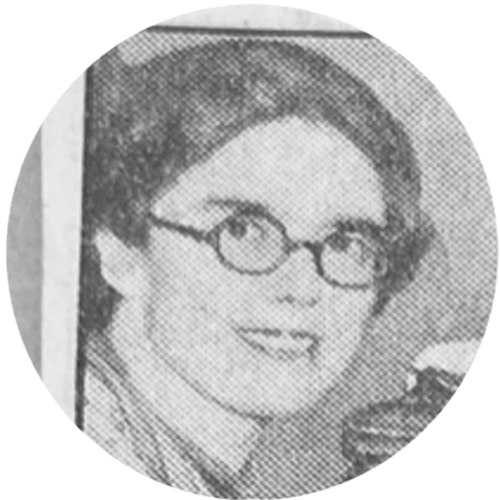 By Lawrence Blum, June 2024
By Lawrence Blum, June 2024
In Parenthesis is centrally concerned with counter-traditions to the “mainstream” of British moral philosophy in the 20th century. Dorothy Emmet was very much a kindred spirit to the Quartet in contributing to those counter-traditions.
Emmet challenges the strong is/ought, fact/value, and description/evaluation dichotomies, and her way of doing that overlaps with Foot’s, Anscombe’s, Midgley’s and Murdoch’s approaches but also differs from them. But like them, her way of doing ethics is much more down-to-earth and engaged with life in human societies than the mainstream approaches of that period. For Emmet this is connected with a somewhat remarkable interdisciplinary range, a feature she shares with Midgley, whom, along with Mary Warnock, Emmet mentions in this precise context (Philosophers and Friends, p. 50: as “alert to wider problems of public concern”).
Emmet was one of the first scholars of Murdoch (15 years her junior), discussing The Sovereignty of Good in the late ‘70’s (in The Moral Prism, 1979), then in 1994 in The Role of the Unrealisable. She probably influenced Murdoch’s lone voice defense of metaphysics in the ‘50’s and ‘60’s, with her 1945 Nature of Metaphysical Thinking, of which Murdoch owned a copy, and which frames metaphysical thinking as a kind of “analogical” way of making sense of the universe.
One thread in Emmet’s work that is quite distinct from that of the Quartet (though less so of Midgley) is a deeply social conception of ethics. This is partly due to her substantial engagement in social science. But it is also partly a product of her philosophic formation in the 1920’s (while a student at Oxford), when British Idealism was still a live, if fading, part of the philosophic universe. That tradition channelled the Hegelian view that morality/ethics was fundamentally social in character and that it was a problem in Kant’s ethics that he did not recognize this. The British appropriation of this idea by the Idealists Green, Bosanquet, and Bradley (plus the later fellow-traveller Collingwood) put a distinctive spin on the Hegelian core but retained the social focus.
Emmet connects her social conception of morality to the spiritual/religious dimension of life, in line with Hegelian and the British Idealist tradition, and also three other 20th century thinkers who influenced her and whom she discusses in her moral works—Emile Durkheim, the philosophically minded French sociologist; Henri Bergson, the influential early 20th century French philosopher (specifically in The Two Sources of Morality and Religion); and A.D. Lindsay (The Two Moralities), her tutor at Oxford, a liberal Christian socialist, also known to Murdoch and Midgley.
In rethinking 20th century British ethics and philosophy more generally, Idealism may need to be given its place within the alternatives to both the positivist and linguistic threads, and Emmet should very much be part of that project.
Emmet’s political outlook is quite interesting, and speaks to an independence of thought and action from early on. Regarding the 1926 general strike in the UK, in support of miners in Wales and England, Emmet heard a talk in support of the miners by the economic historian and socialist, R. H. Tawney, that “gave me the nearest thing to a conversion experience, leading me to be seriously concerned about political matters” (Philosophers and Friends, 31). This led her to arrange to teach political philosophy courses to unemployed miners in a mining district in South Wales and to work in the Workers Education Association at Balliol College for several years after that.
In the 1960’s Emmet became interested in the student movement and the “counter-culture” of that period. She incorporated elements of those historical developments into her work in various ways. For example, she chided moral philosophers for failing to recognize that moral life in the contemporary world was often lived through large institutions (part of her recognition of the social aspect of morality). But at the same time she was taken with the student movement’s revolt against bureaucracy. In Rules, Roles, and Relations she strives to balance these opposing tendencies.
In Moral Prism, Emmet discusses the counter-cultural search for “altered states of consciousness” through psychedelic drugs, in the context of a more general interest in mysticism, including its Hindu and Buddhist forms (an interest shared with Murdoch, who however did not link it to psychedelics or the counter-culture).
- Wiseman, Rachael 2022, ‘Wittgenstein, Anscombe and the Need for Metaphysical Thinking’, Proceedings of the Aristotelian Society
- West, Peter 2023, ‘Seeing Life Steadily: Dorothy Emmet’s philosophy of perception and the crisis in metaphysics’, British Journal for the History of Philosophy: 1-25
- Wiseman, Rachael 2024, ‘Dorothy Emmet: ‘for administrators whose hearts are with the anarchists, and anarchists who can have a heart for the administrators’. Stuart Jones (ed.), Manchester Minds, MUP
